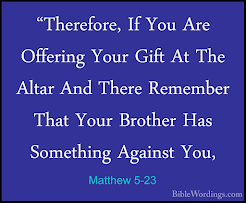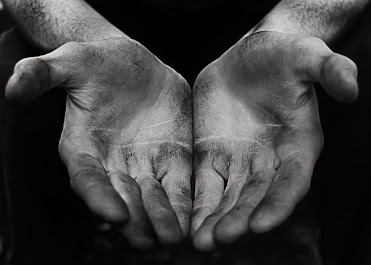by Deacon Steve,
Homily for 24th Sunday in Ordinary Time, 2024
In our contemporary films and TV programs, and thus for many of us, the perfect hero is one who responds to rejection, persecution, or some form of personal attack with a dazzling display of power and most likely, violence, enhanced of course by CGI and AI. For our modern society the measure of a hero is measured in body counts and timely explosions.
In our first reading today, from a section of Isaiah known as the Song of the Suffering Servant, the hero responds with silence, patience, and unwavering determination. The Suffering Servant knows that they are guided and inspired by our Lord. As this faith grows, they develop the courage and patience to face every kind of adversity for they have come to believe deeply that God will be the source of their strength.
Thus, Isaiah writes, “The Lord God helps me; therefore, I have not been disgraced; therefore, I have set my face like flint, and I know that I shall not be put to shame.”
We may think that we have to be a fanatic. But a fanatic, is self-centered and willing to use force, violence and hatred to impose their own vision of the truth and believes everything depends on them. In contrast, the one who is truly listening to God and is called by God, is God centered and does not wish to undermine God’s work with violence and hatred. It is God’s show - and their strength and success will only come from our Lord. They will quietly and peacefully stand firm in their ideals and let the power of truth itself win the victory.
And so, they say, like Isaiah, “It is the Lord God who helps me.”
****
“What good is it my brothers and sisters. If you say you have faith but do not have works? Can faith save you?
If a brother or sister is without clothing and lacks daily food, and one of you says to them, “Go in peace; keep warm and eat your fill,” and yet you do not supply their bodily needs, what is the good of that? So, faith by itself, if it has no works, is dead.
But someone will say, “You have faith, and I have works.” Show me your faith apart from your works, and I by my works will show you my faith.” James 2:14-18 – Second Reading
The Letter of James reminds us that religion is not about focusing merely on our own personal salvation – in other words, the “me and Jesus” form of spirituality.
Scott Lewis, a scripture scholar reminds us,
“Although faith springs from the depth of our own heart, it must always be expressed in concrete ways, most notably in the care and concern for the well-being and happiness of others (all of our brothers and sisters). Any form of religion or theology that turns a blind eye to the human suffering of others or theologizes it away is human selfishness and a lack of love cloaked in pious platitudes. Faith as love – is always manifested in deeds.”
****
Jesus in our gospel today from Mark, asks the apostles a simple question. “Who do people say that I am?” After they give the usual pat answers, Jesus asks them, and so us, “Who do you say that I am?”
Peter, who has been quiet, lost in deep thought and silent communion in the depths of his soul, blurts out the answer, “You are the Christ.”
The gospel writer, rather than Jesus praising him, has Jesus tell them sternly to tell no one.
What follows reveals why Jesus does this. For Jesus goes on to tell them what it really means to be the Christ, the Messiah. It is about suffering, humiliation and death, which we know the apostles, like ourselves at times, do not want to hear. Jesus reveals to them that they are thinking, “as humans do” and as the world does. As humans we tend to think of comfort, safety and reputation.
Jesus…then says to them, “Whoever wants to become my follower, let him deny himself and take up his cross and follow me.” Mk 8:34
Taking up one’s cross means one thing – being willing to focus on God’s will regardless of personal cost.
Today, we can see all sorts of examples of people who do this very thing, volunteering at soup kitchens, clothing and food banks and Out of the Cold programs. Right here in our parish we have the CWG, the Knights of Columbus, the bereavement ministers, our ministers who volunteer to help at our liturgies.
As well there are our outreach volunteers, bringing communion to those who cannot be here. In addition, there are our Vincentians, members of the Saint Vincent de Paul Society, who, with the help of our weekly donations, go out each week to bring food cards and baskets to those in need. More important is the time they spend with our brothers and sisters who feel weak and vulnerable.
Together all of these ministers, day by day, deepen their faith by their works, becoming followers of Christ by taking up Christ’s cross.
Thomas Merton a famous monk and spiritual writer in our modern times, wrote, “It is not a matter of God or humanity, but of finding God by loving humanity, (all of our brothers and sisters) and discovering the true value of humanity in our love for God. Neither is possible without the other.”
And further he writes, “…we exist solely for this, to be the place God has chosen for our Lord’s presence, God’s manifestation in the world.”
Our Eucharist speaks to us, tells us that we are the Body of Christ, Christ’s manifestation to the world. Let us then, each day, try to deny ourselves, take up our cross and follow our Lord and with God’s grace and blessing, grow in our confidence that God will stand with us and help us.












